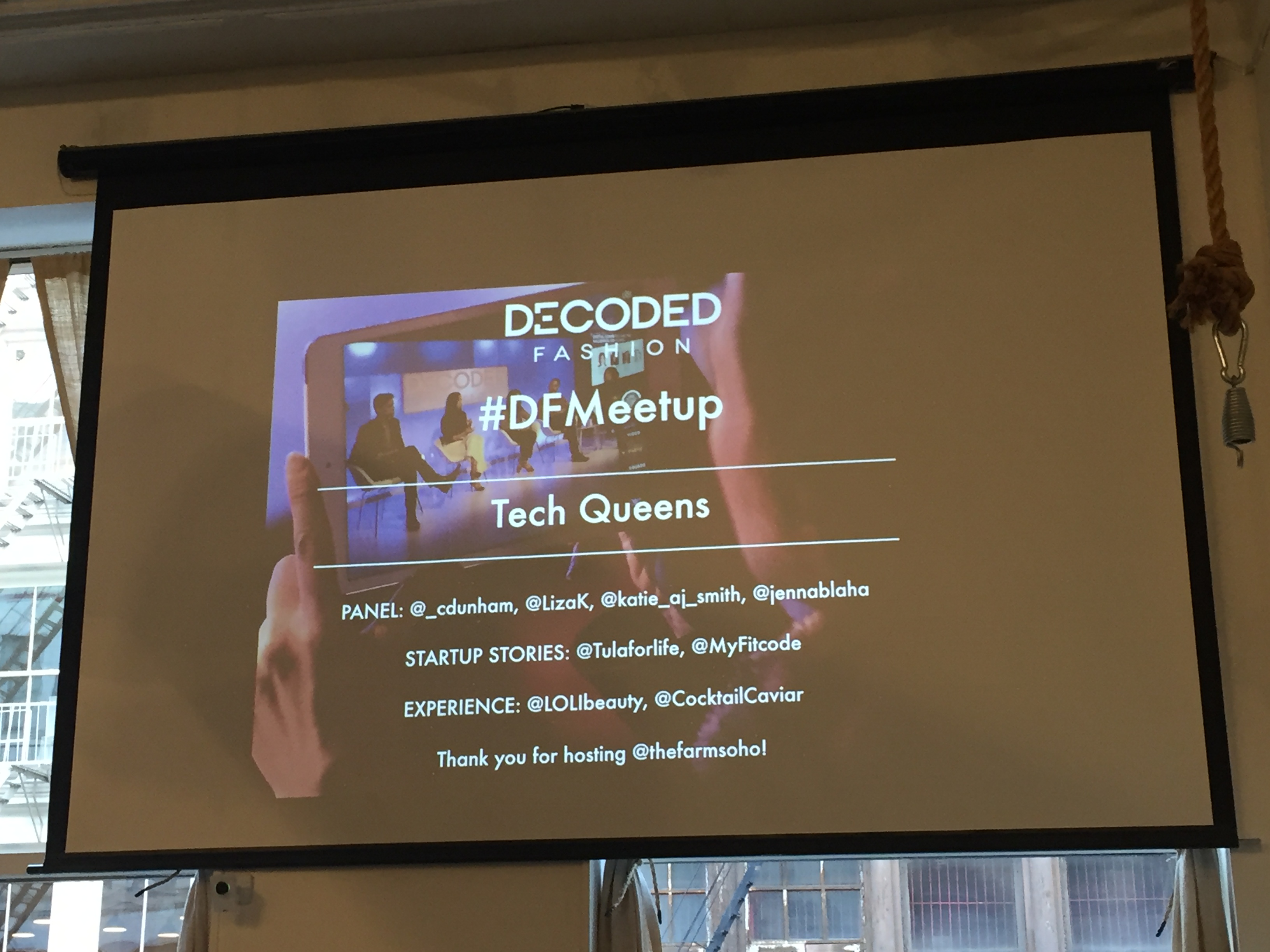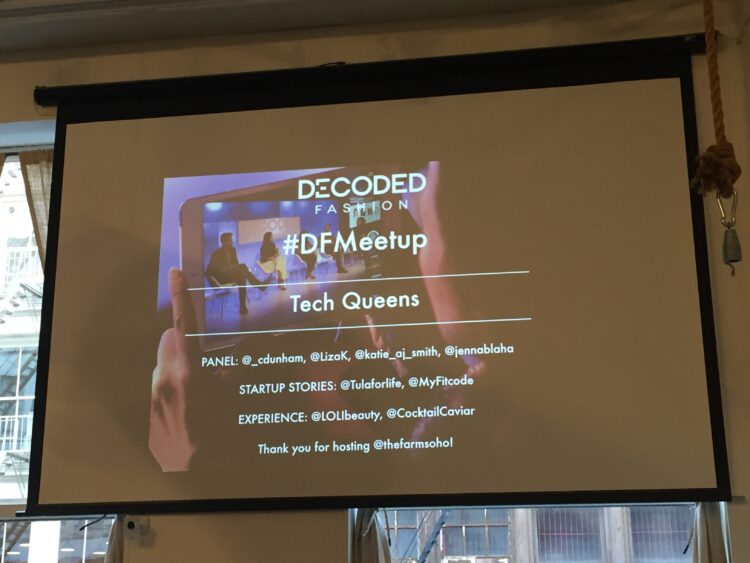
Entrepreneurs, techies, and fashion mavens sipped on champagne filled with strawberry vodka-filled pearls while six female tech-powerhouses spoke about how to succeed in the constantly changing industry at the recent Decoded Fashion’s “Tech Queens” event.
First, was a panel of four women: Jenna Blaha, Tech Editor at Marie Claire, Liza Kindred, founder of Third Wave Fashion, Carla Dunham, VP of Global Brand Strategy at Kate Spade & Company, and Katie Smith, Senior Fashion & Retail Analyst at EDITED.
Blaha asked Kindred, Dunham and Smith probing questions about creating a startup, the challenges of innovation, and technology’s impact on the fashion industry.
Kindred’s business, Third Wave Fashion, is a publication and platform to help different fashion and retail brands work together. She has linked companies like Amazon, Zappos and Bergdorf Goodman.
Kindred, who previously owned a boutique and worked as a stylist, said she was “horrified” with the fashion industry and opted for a career at a tech company. Still unfulfilled with her career, Kindred created Third Wave Fashion to merge the fashion and tech fields. This was 15 years ago, when fashion and technology were not synonymous.
According to Kindred, this ability to think unconventionally is the secret to her business’ success.
“It really has come from going to that place where nobody was,” she said.
Kindred’s advice for other fashion tech startups is to maintain a consistent identity by specializing in one medium and one social media outlet.
For Third Wave Fashion, this means publishing a quarterly print magazine as well as weekly blogs.
According to Kindred, “There’s nothing like holding a beautiful magazine and being able to flip through it.”
Dunham, who currently drives global brand awareness for Kate Spade, went to school for art history, then worked in retail before discovering her passion for marketing. Her advice for young entrepreneurs is to constantly push the envelope and create an idea that will emotionally connect with the consumer.
“The challenge isn’t finding the audience anymore,” she explained. “It’s what are you gonna say to them?’”
Smith, who was originally a fashion designer, saw a need to analyze the market she was designing for. She took a data analysis internship without any prior experience, and then created data platform EDITED, which aggregates customer data.
“It appealed to me, pairing up the consumer mindset and the economy,” she explained.
Smith, who is from England, stressed the need for today’s startups to compete globally. She said that businesses should consider consumers of all demographics and communicate consistently with every global team.
“Everything about retail has changed in the past 10 years and it’s all because of the internet,” she said.
The next part of the event introduced two new startups in the fashion/beauty tech industry. The founders educated the audiences on how they developed their product and the key issue it addresses.
Julia Strauss, one of its three cofounders, spoke about Tula, a skincare company that strives to “help women find balance and beauty.”
Tula is the first skincare product to include probiotics, which, Strauss explained, have similar benefits to eating foods with probiotics.
This product can be used by both genders, and has been tested and approved by 600 beauty bloggers—after the company sent each of them a free sample—no brand-sponsoring required. It is currently being sold on home-shopping network, QVC.
Strauss says the product took off unexpectedly fast, and believes that the probiotics are the determining factor for consumers.
“In the beauty space, as well as the fashion space, you need to have a pint of difference,” she said.
Ryan Buckley, fit model and CEO of Fitcode, also knows a thing or two about unique ideas. Buckley, who has modeled denim for Nordstrom, found that the jeans rarely fit her body, and said that the online pictures don’t show the clips in the back that make the jeans look “skinny.”
“There’s this huge disconnect between what people are seeing online and what they actually order,” she said.
After she discovered that companies lose $260 billion annually in e-commerce returns—the number one reason being fit—she decided to create Fitcode.
Fitcode gives women a quiz about their body type (without incorporating numbers or pictures) and then tells them which jeans will fit them best. So far, Fitcode has partnerships with Nordstrom and Hudson Jeans. Buckley is happy to be working with such reputable companies at such an early stage.
“I’m an accidental entrepreneur,” she said.
The Tech Queens delivered a forward-thinking conversation that could inspire any prospective fashion-tech entrepreneur. The event revolved around innovation and choosing the “road not taken.” Ultimately, Blaha said the audience should understand that fashion tech is not only a business, but is also still an art form.
She described fashion technology, saying, “It really is—what fashion is in essence—art meets commerce.”



